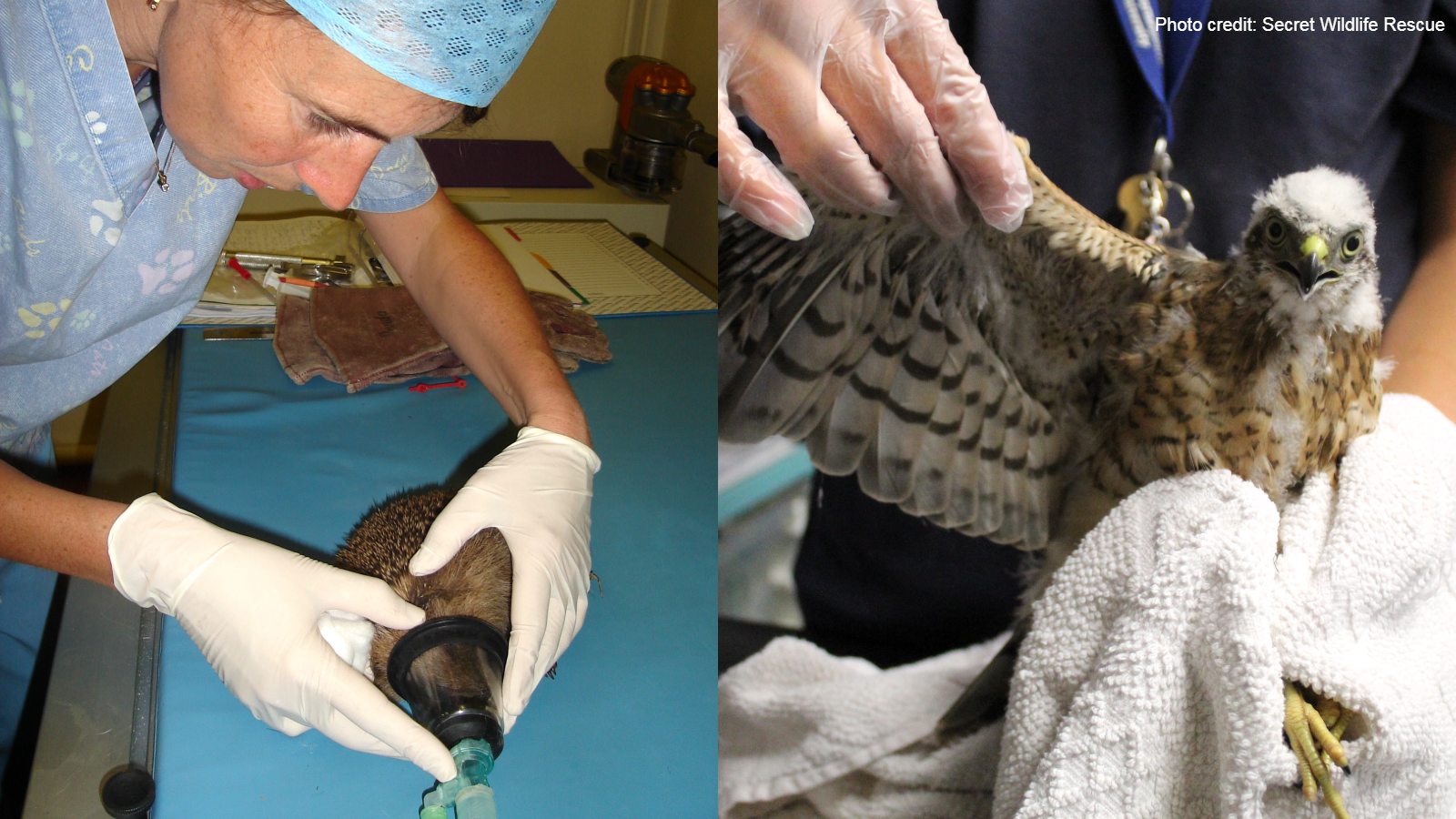The veterinary voice for animal welfare: reflecting on BVA’s updated Animal Welfare Strategy
11 Jul 2025
24 May 2024 | Liz Mullineaux
With National Garden Wildlife Week just around the corner, BVA Junior Vice President Liz Mullineaux shares tips to promote wildlife-friendly spaces and contribute to wildlife disease surveillance.

National Garden Wildlife Week starts on the Spring Bank Holiday Monday, the last Monday in May. Weather allowing, this is a perfect time of year to engage individuals and families with the animals living in their gardens and encourage the development of wildlife-friendly spaces.
This year, National Garden Wildlife Week coincides with a new event for the wildlife charity I work for, Secret World Wildlife Rescue, in the form of a ‘Wild Weekend’. Although the charity does rescue, rehabilitate, and release British wildlife, in recent years our focus has increasingly moved to education. Through education we can help mitigate risks to our wild animals, help ensure their welfare in the wild and when they come into captivity, and more broadly fulfil one of the charity’s aims which is to Inspire learning about the world of British wildlife, encouraging everyone to discover what they can do to protect it. The Wild Weekend is just one of our educational offerings, alongside school outreach, adult education courses and an annual conference.
Embracing wildlife in veterinary practice
Of course, not everyone in veterinary practice is as engaged with wildlife as I am. Many veterinary teams just dread a telephone call about injured wildlife or the arrival of a wild animal in the waiting room. For those people, I’d maybe suggest joining me at BVA Live in June when I’ll be presenting 'Tame your fears: Practical tips on dealing with British wildlife'. Caring for wildlife however doesn’t all have to be hands on. Our veterinary practices can, and perhaps should, be havens for wildlife. Flowerbeds to attract pollinators, bird boxes, bug hotels and other wildlife offerings can all illustrate to clients that our caring goes beyond the practice door and farmyard gate. On farms, we can actively support appropriate set-aside and well considered rewilding. In our practices, we can fill at least some notice board space with client education, for example not to pick up ducklings, leverets or young deer. We can also shout about team activities that involve things like conservation projects.
Contributing to Wildlife Disease Surveillance
I’m not going to go into the pros and cons of treating wildlife casualties here, but our inevitable contact with British wildlife as veterinary professionals does provide us with a unique opportunity to contribute to wildlife disease surveillance. The Animal and Plant Health Agency (APHA) run a wildlife disease surveillance scheme, with a vet at its helm. This scheme and a raft of other relevant organisations come together under the Wildlife disease & contaminant monitoring & surveillance network (WILDCOMS) run by the UK Centre for Ecology and Hydrology. One of my favourite organisations in this group, which brings me back to the theme of this blog, is Garden Wildlife Health (GWH). GWH is a collaborative project between the Zoological Society of London (ZSL), the British Trust for Ornithology (BTO), Froglife and the Royal Society for the Protection of Birds (RSPB). The project aims to monitor the health of, and identify disease threats to, British wildlife. Through the project you can report sick or dead British wildlife that inhabits our gardens, typically small birds, hedgehogs, reptiles and amphibians. If the GWH team consider what you are reporting to be interesting, they then offer a pathology service to investigate further. Through this they have identified new and emerging diseases in our British wildlife garden species. GWH also produce some great information on garden wildlife diseases, all available free of charge on their website.
This National Garden Wildlife Week, I’d encourage all veterinary teams to consider how they might promote garden wildlife, help educate the public, and contribute to surveillance.
Get tailored news in your inbox and online, plus access to our journals, resources and support services, join the BVA.
Join Us Today